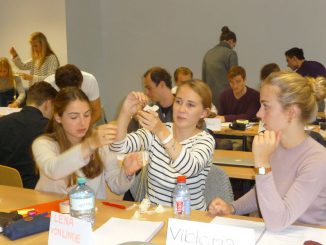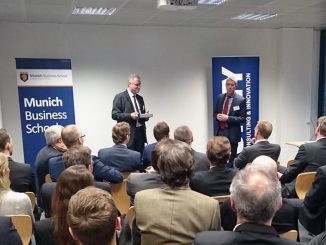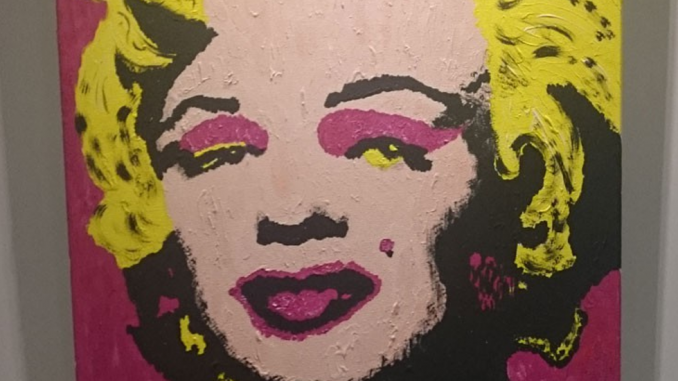
Have you been told that you are right or left brained? Do you consider yourself to be analytical or creative? Structured or visionary?
Commonly, students claim that they have a preference for one side and defend their performance or underperformance in different subject areas, claiming that they are either left or right brained. Often at Munich Business School, students claim that they are numbers orientated, analytical or non-creative types.
Know your thinking style
Supporting this dominance theory, amongst others, is Kobus Neethling. Undertake the “Neethling Brain Instrument” (NBI) and your preferred thinking style will be analyzed, increasing your awareness of thinking preferences. Neethling claims that by knowing your thinking profile, you will be able to develop better relationships, make more dynamic contributions in a team context, and make sound and relevant decisions. In addition, by knowing your thinking preferences, you will be capable of making more accurate job and career choices.

Although brain dominance or lateral brain theory has become mainstream, neuroscience research is challenging the preconception of left/right brain thinkers, showing that we use both parts of our brains equally and the most significant factor is the connections between these two1. No more excuses then – you are using all of your brain.
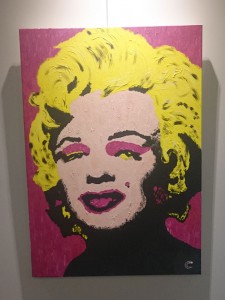 Are you a creative genius?
Are you a creative genius?
Additionally, for all our students who claim that they are not creative, let us introduce you to Acquired Savant Syndrome. Most people know Savant Syndrome, often associated with autism, from the fictional movie “Rainman”, where an exceptional talent is apparent. Acquired Savant Syndrome is a similar condition and – although extremely rare – can occur when people suffer from brain damage or forms of dementia which are particularly relevant to the anterior temporal lobe2. In such cases, individuals discover exceptional talents which were previously not apparent. Individuals who were never creative became creative geniuses.
The interesting question is whether these talents developed through the illness or whether the talents were always there and the illness allowed the gates to open? Maybe, we all have incredible talents that we haven’t tapped into yet? Maybe you are a creative genius?
Pablo Picasso once said: “All children are born artists. The problem is to remain an artist as we grow up.”
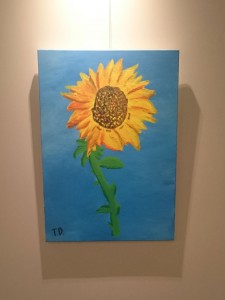 Students discover their artistic skills
Students discover their artistic skills
On November 14th, Munich Business School held the first MBS Art Workshop, which allowed our Bachelor and Erasmus students the possibility to explore their artistic skills. With the support of a local artist, Tatjana Utz, a number of our students painted their first ever canvas and some were surprised by their own abilities.
This year, without damaging our brains, participants on this workshop delved into their imagination, explored their own inner creativity and discovered they are still artists. Are you?
Don’t hesitate to contact Gabriella Maraz or Christopher Chamberlain for further details and to register your interest for the Summer Semester Art Workshop taking place on Saturday, February 27th, 2016.
1 Nielsen JA, Zielinski BA, Ferguson MA, Lainhart JE, Anderson JS (2013) An Evaluation of the Left-Brain vs. Right-Brain Hypothesis with Resting State Functional Connectivity Magnetic Resonance Imaging. PLoS ONE 8(8): e71275. doi:10.1371/journal.pone.0071275.
2 Treffert D.A. 2009 The savant syndrome: an extraordinary condition. A synopsis: past, present, future. Phil. Trans. R. Soc. B. 364, 1351–1357.



